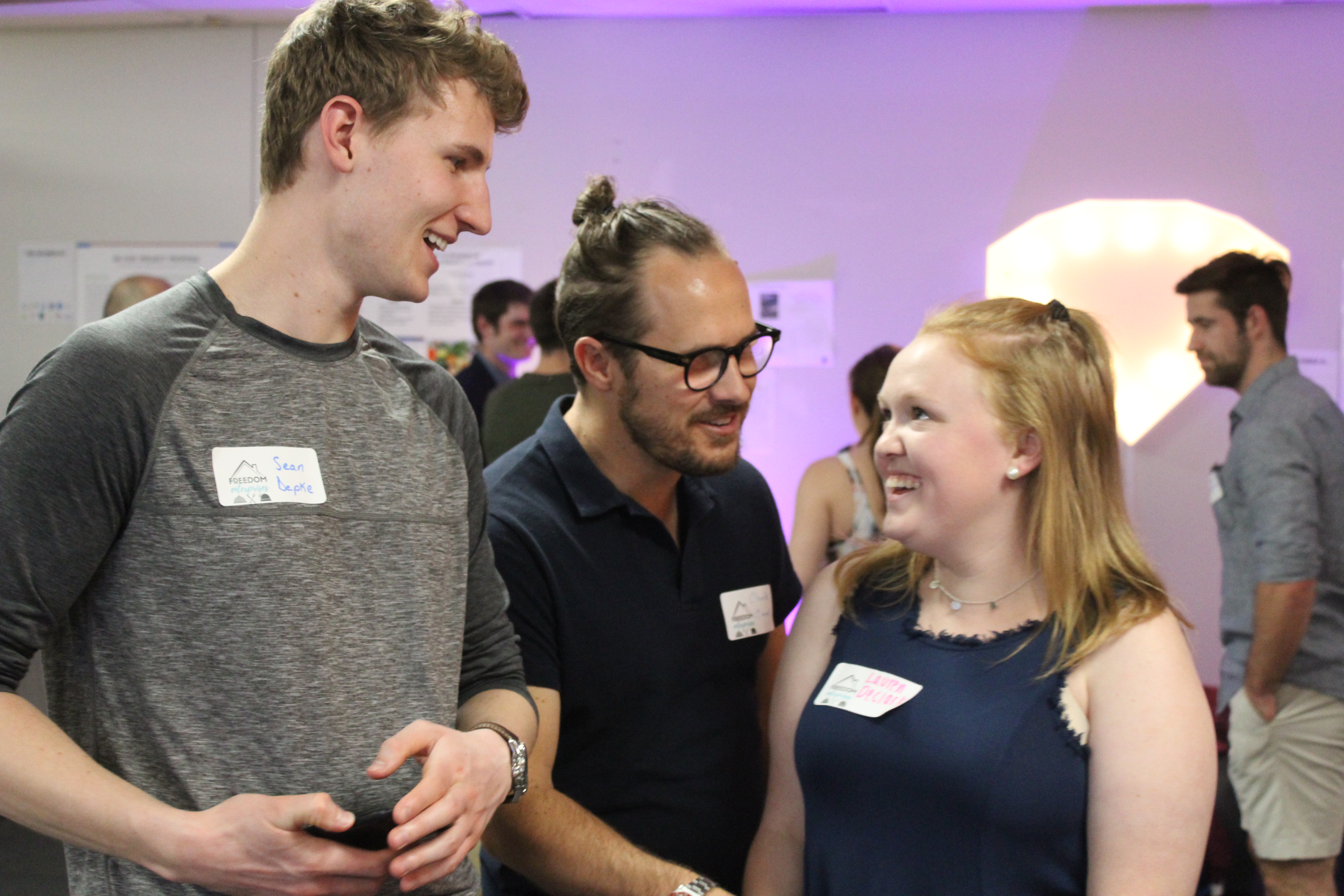IACT: Creativity for Tomorrow

How an Experimental Project Turned into an After-College Career
By Lauren DeClark '19
To read part I of Lauren's journey, start here.
I remember the first time the words “Freedom Enterprise” were written down on a scratch piece of paper. I remember when I took a chance and took the lead of the GEMnasium challenge during the Collaboration Accelerator in the summer of 2018. It was a project that I had high interest in because I could see that our small idea of Freedom Enterprises, which was messy and incomplete, could turn into something big.
And that, it has.
During the 2019 Spring semester, 5 students and a combination of community partners and courtesy faculty have extended the Freedom Enterprise work started during Fall semester, in which we created an assessment of the 5 different types of poverty (Financial, Intellectual, Physical, Spiritual, and Relational). Now putting these ideas into action, we moved beyond the cages of the GEMnasium and entered into the East End Community. Every other week, we met with the community members who reside in the East End and engaged in a meal and discussion. We did this be we realized that we too, need help. We are tackling an issue that few of us have actually been immersed in, so we need to lean on the people who are our intended audience for Freedom Enterprise to help us. They needed to tell us what will and won’t work when it comes to supporting people through employment when they have a past of addiction and incarceration. They needed to be able to tell us, “look, you just don’t get it” and we need to be able to admit “I know, but please help me to understand as fully as I can”.
In order to maintain this type of relationship with the community, we had to gain trust. Luckily for us, the East End welcomed us with open minds and hearts, and easily let vulnerability into the space. Weekly, we sat around the table, only wanting our raw and authentic selves. We have learned a lot to take with us into the future of Freedom Enterprise.
This course has been completely different than any course I have ever taken, and it comes down to the fact that we are learning alongside our faculty members. It has not been a circumstance where they teach us what they know, but they are honest and say “we don’t know what is going to happen and we don’t have all the answers, but let’s try to figure it out together”. While our courtesy faculty have years of experience working with this people who struggle from addiction or incarceration, they never act as if they know more than us. Instead, they offer their wisdom and encourage us to share ours, as well.
Now, having been around from the very beginning of Freedom Enterprise, I have the opportunity to transition this class into reality. Sarah Richard, who has been right there with me every step of the way, and I will be working for Miami Valley Life Alliance upon graduation. It feels surreal that I am being hired to actually start what has been just an idea for so long. Our work with the East End will continue, as well as our work in the GEMnasium.
At the Institute of Applied Creativity for Transformation (IACT), our vision is to create a mindset of possibility that disrupts the world through 21st century citizenship. We believe in creative changemaking with a sustainable, humanity-centered focus that blends educational and vocational frameworks for self-determination and transdisciplinary transformation.
For more information about IACT at ArtStreet, call 937-229-5101 or visit go.udayton.edu/iact
